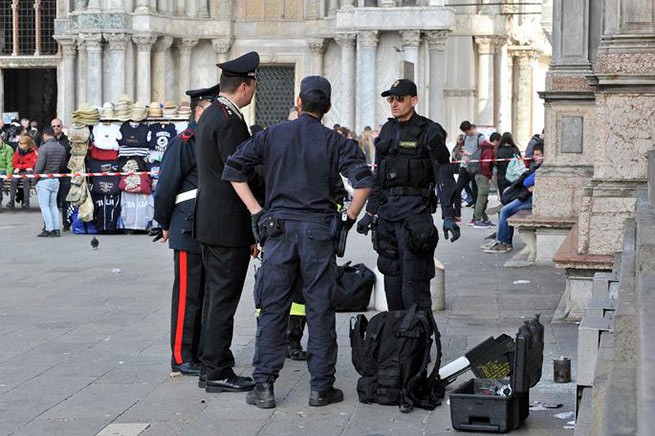Bribery, fraud, doping and general corruption have at times tarnished the image of the Olympic Games over the past few decades.
Many people negatively compare the modern Olympic Games with their ancient Greek counterparts, stating that there was less corruption in the ancient games. However, the famous “Olympic spirit” in ancient Greece, where the games began, was not as noble and pure as idealists tend to believe.
On the contrary, some competitions in ancient Olympia have also been the target of fraud, bribery and even a primitive form of doping.
The ancient Olympics were a ticket to fame, wealth
Competitors vied for fame and fortune, and the city-states they represented also saw competition as a way to dominate their rivals.
According to David Goldblatt’s book The Games: A Global History of the Olympic Games, many athletes were professionals who vied for prizes and status that often led to public office. Thus, it seems clear that the idealized Olympics of Ancient Greece, free from corruption, were an attractive myth that lasted 2,500 years.
Behind this myth of purity are ambitious athletes who have sometimes tried to bribe or even sabotage their opponents. During the ancient Olympic Games, athletes, their fathers and coaches swore not to “sin against the games,” according to Nigel Crowter, former director of the International Center for Olympic Research. But some of them did just that. For example, Pausanias wrote that in 388 BC. boxer Eupolus bribed three of his opponents at Olympia. The Games officials then punished all four participants.
The consequences of cheating in ancient Greece
In about 322 BC a pentathlete named Callipp offered his competitors money to make them lose the competition. Incredibly, according to the philosopher PhilostratusCoaches often lent money to athletes at high interest rates for the sole purpose of bribery. In addition, some Olympic athletes have been bribed to compete for other city-states. Following his Olympic victory, Cretan runner Sotades was bribed to compete for the rival city of Ephesus. After that, he was expelled from his hometown. In the fifth century BC, the wealthy inhabitants of Syracuse persuaded Astilos of Croton to fight for their city, and a century later the runner Deacon of Caulonia became the same target. In the first case, the inhabitants of Croton turned Astil’s house into a prison and destroyed his statue. When the corruption case was solved, the guilty athletes had to pay fines – both to those who gave the bribe and those who accepted the money. But the result of the competition remained unchanged. The winning athlete was declared the winner, even if he was corrupt. At Olympia, there was a special series of statues called Zanes. These were statues of Zeus, erected on fines paid by corrupt athletes. Standing at the entrance to the stadium, they served as a warning to the athletes. They were also viewed as peaceful sacrifices to Zeus, because the athletes broke the Olympic oath to the god to whom the Games were dedicated. Incredibly, thanks to the writer Pausanias, we even have fascinating stories behind each statue. For example, in 532 BC. the Athenian bribed his opponent in the pentathlon. Therefore, the Eleans fined him, but the Athenians sent a famous orator to Olympia, who pleaded for the abolition of the punishment. The Eleians refused, and for this reason the Athenians wanted to boycott the Olympic Games. But when, because of this boycott, the Delphic priests refused to give the Athenians any oracles, they still paid a fine. In total, six statues of Zeus were erected with this money.
Upon his return to Rome, Nero was hailed as the most successful Olympic athlete in history. Alas, the purchased victories in the Greek lists did not help him to raise his popularity and restore his authority. Soon, opponents of Nero organized a conspiracy and killed the emperor. Servius Galba, who succeeded him on the throne, demanded that Olympia return the money that Nero gave to the judges and organizers in exchange for victories. Naturally, the tax exemption promised to Olympia was also canceled. The Greeks were very offended and violated their own principle. They took revenge on the Romans by deleting the Games of 67 from the list of the Olympics and all references to Nero.
Poetic Athlete
At the 212nd Olympiad in 67 AD, Emperor Nero was awarded 1808 olive wreaths. True, he did not get them entirely in sports wrestling: the bribed organizers included poetry and musical competitions in the program, in which the emperor was strong. The ancient Greeks, of course, did not need to be taught corruption, they themselves could teach anyone. However, corruption at the Olympics flourished most magnificently among the Romans.
The emperor Nero is formally considered the most outstanding Olympian of all times and peoples. Even Michael Phelps with his eight gold medals won in 2008 in Beijing cannot dream of approaching his incredible result. The emperor was awarded olive wreaths at the 212nd Olympiad 1808 in 67. The historian Dion wrote that Nero ordered them to be nailed to the Egyptian obelisk in the Roman circus – the obelisk turned into a huge olive tree.
The astronomical number of victories is explained by the fact that Nero persuaded, or rather, bribed the organizers of the Olympic Games, and they included in the list of competitions, along with sports disciplines, poetry and music competitions – in these genres, the emperor really got used to.
The organizers of the competition could not resist the bribe. In their defense, they could certainly say that they were trying not for themselves, but for the sake of the public good. In gratitude for the inclusion of singers, poets and musicians in the Olympic Games, the emperor proposed to free Olympia from taxes. Nero also asked to postpone the Games two years in advance. He explained this request with the concerns associated with the management of a huge empire. By the way, seven years earlier, in 60, Nero held sports competitions in the Greek manner in Rome and called them Nero.
Emperor Nero participated in chariot races drawn by four horses. He was a bad driver: he miscalculated the turn and fell out of the racing carriage. Suetonius wrote in The Life of the Twelve Caesars that Nero was helped to get back into the chariot so that he could continue the race, but the emperor was never able to reach the finish line. However, such a trifle did not prevent him from becoming an Olympian in chariot races too. This victory, like the others, he simply bought.






More Stories
57 years ago, a junta of black colonels came to power in Greece.
On April 10, 1821, the Turks hanged Patriarch Gregory V at the Phanar gates
How did married couples divorce in Ancient Greece? Difference with modern divorces